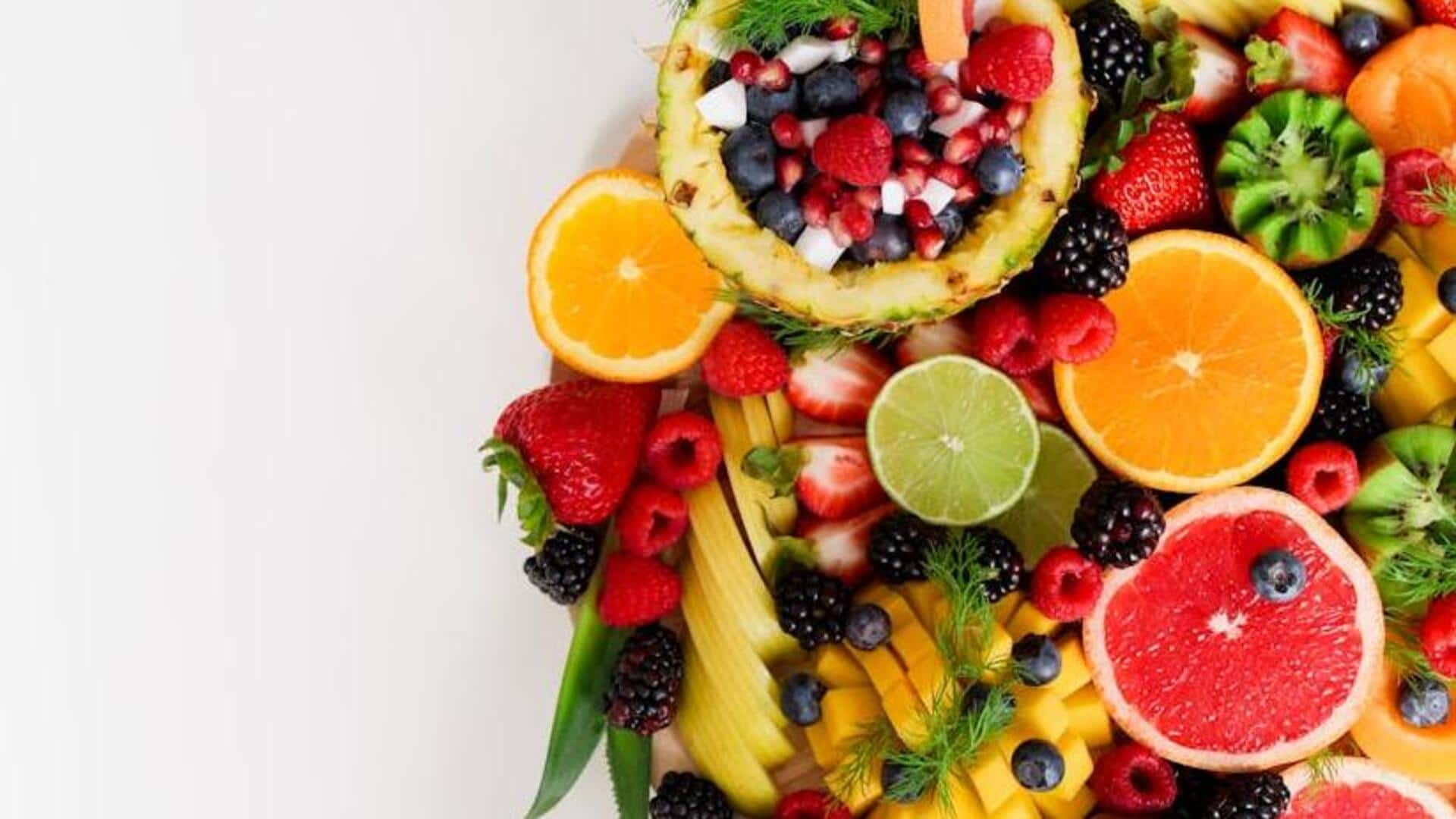
Your gut loves fruits! Here's how they help
What's the story
The importance of fruits in promoting a healthy gut microbiome, and by extension, overall well-being, cannot be overstated.
This article delves into the science behind how eating a wide range of fruits can dramatically boost your gut bacteria's diversity, resulting in better digestion, immunity, and even mental health.
Grasping this link between fruit consumption and microbiome diversity equips us with the knowledge to make smart dietary decisions.
Variety
Variety is key to gut health
Eating a variety of fruits is key to fostering microbiome diversity.
Each fruit offers unique fibers and phytonutrients, which act as nourishment for distinct bacterial species in your gut.
Research indicates individuals consuming 30+ different plants per week possess more diverse microbiomes compared to those eating 10 or fewer types.
By including a variety of fruits in your weekly diet, you can easily achieve this target.
Prebiotics
Prebiotic powerhouses in fruits
Certain fruits act as prebiotics, essentially providing fuel for the beneficial bacteria in your gut.
Bananas, apples, and berries are especially high in a type of soluble fiber called pectin.
This fiber gets fermented by your gut bacteria into short-chain fatty acids (SCFAs).
SCFAs are key for enhancing gut barrier functions and lowering inflammation, contributing greatly to digestive health.
Antioxidants
Antioxidants enhance bacterial growth
Antioxidants in fruits, including vitamins C and E, flavonoids, and carotenoids, do double duty: they shield our cells from oxidative stress and also act as prebiotics, nourishing beneficial gut bacteria.
For example, studies show that polyphenols from blueberries boost the numbers of Bifidobacteria and Lactobacilli in the gut. These bacteria benefit intestinal health.
Seasonality
Seasonal fruits boost microbial diversity
Eating seasonal fruits guarantees you're consuming them when they're most nutritious, and it also helps diversify your diet throughout the year.
This habit will automatically supply a wider range of nutrients and prebiotic fibers to your diet at various times, fostering the development of a more diverse bacterial population within your gut microbiome.
Additionally, seasonal fruits are usually more flavorful and can be more economical.
Fermentation
Fermented fruits: A probiotic source
Adding fermented fruits to your diet is also a powerful way to boost microbiome diversity.
Fermentation processes foster the growth of probiotics, which are essentially the good guys in the bacteria world, helping our gut flora thrive.
Think fruit kimchi (apples or pears) or even kombucha brewed with fruit juices.
These probiotic powerhouses introduce new beneficial bacterial strains, expanding the diversity of our microbiota.